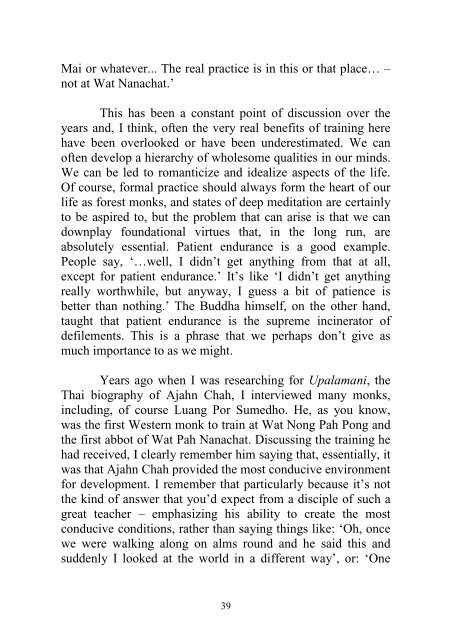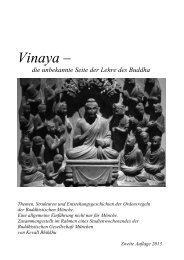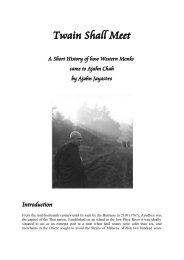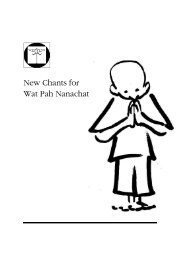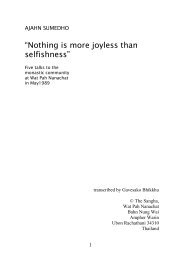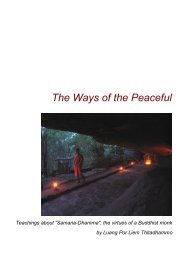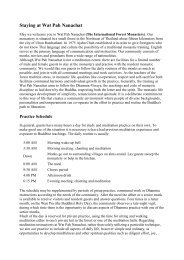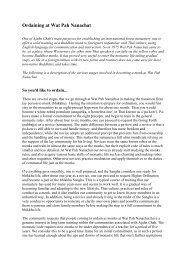Khanti - Wat Pah Nanachat
Khanti - Wat Pah Nanachat
Khanti - Wat Pah Nanachat
You also want an ePaper? Increase the reach of your titles
YUMPU automatically turns print PDFs into web optimized ePapers that Google loves.
Mai or whatever... The real practice is in this or that place… –<br />
not at <strong>Wat</strong> <strong>Nanachat</strong>.’<br />
This has been a constant point of discussion over the<br />
years and, I think, often the very real benefits of training here<br />
have been overlooked or have been underestimated. We can<br />
often develop a hierarchy of wholesome qualities in our minds.<br />
We can be led to romanticize and idealize aspects of the life.<br />
Of course, formal practice should always form the heart of our<br />
life as forest monks, and states of deep meditation are certainly<br />
to be aspired to, but the problem that can arise is that we can<br />
downplay foundational virtues that, in the long run, are<br />
absolutely essential. Patient endurance is a good example.<br />
People say, ‘…well, I didn’t get anything from that at all,<br />
except for patient endurance.’ It’s like ‘I didn’t get anything<br />
really worthwhile, but anyway, I guess a bit of patience is<br />
better than nothing.’ The Buddha himself, on the other hand,<br />
taught that patient endurance is the supreme incinerator of<br />
defilements. This is a phrase that we perhaps don’t give as<br />
much importance to as we might.<br />
Years ago when I was researching for Upalamani, the<br />
Thai biography of Ajahn Chah, I interviewed many monks,<br />
including, of course Luang Por Sumedho. He, as you know,<br />
was the first Western monk to train at <strong>Wat</strong> Nong <strong>Pah</strong> Pong and<br />
the first abbot of <strong>Wat</strong> <strong>Pah</strong> <strong>Nanachat</strong>. Discussing the training he<br />
had received, I clearly remember him saying that, essentially, it<br />
was that Ajahn Chah provided the most conducive environment<br />
for development. I remember that particularly because it’s not<br />
the kind of answer that you’d expect from a disciple of such a<br />
great teacher – emphasizing his ability to create the most<br />
conducive conditions, rather than saying things like: ‘Oh, once<br />
we were walking along on alms round and he said this and<br />
suddenly I looked at the world in a different way’, or: ‘One<br />
39


